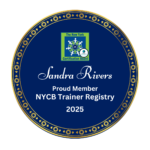During the holidays, the complexities of how you love someone with substance use disorder become especially pronounced, challenging the spirit of togetherness and joy.
In these times, understanding the stress and pain of having someone close to you with SUD can be transformative, whether you are a clinician, peer, or a concerned loved one. This understanding not only alleviates suffering but also fosters compassion and resilience.
In this post, I share how I learned to love my children with SUD, self-care tips to help family members, and a downloadable guide to share with your clients, “Navigating the Holidays: A Guide for Families of Individuals with Substance Use Disorder.”
***
As both a clinician and the mother of two adult children in long-term, sustained recovery, I deeply empathize with families—especially during the holiday season.
Regardless of your traditions or culture, this time of year is often associated with family, celebration, and connection. We engage in holiday rituals: secret Santa gift exchanges with coworkers, indulging in festive treats, and enjoying the glow of colorful lights and decorations.
Yet, for those with loved ones battling SUD, this season can feel far from joyful.
We may don cheerful smiles, exchange pleasantries, buy gifts, and prepare family traditions, but our hearts can feel heavy. I vividly remember many Christmases spent with my husband, feeling the absence of my son and daughter, who were consumed by substance use. Their feelings of shame, judgment from others, and inability to stop using kept them away.
Like many families, I initially tried to control the situation: reasoning, withholding resources, and calling incessantly to ensure their safety. If they answered the phone, I knew they were alive.
Sharing this story underscores a pivotal lesson for this time of year. Acceptance.
Over time, I realized I couldn’t change my children. I had to let go of trying to fix them to keep them in my life. Accepting that they may never stop using substances and that I may outlive them was the hardest part.
I envisioned their funerals and prepared myself for the unthinkable. Accepting this worst-case scenario helped me cherish our time, however uncertain it felt.
Millions of families live in this same fear—dreading the call that their loved one is gone.
They wonder: Why won’t they stop? What did I do wrong? Don’t they see what they’re doing to themselves?
The internal dialogue of guilt, shame, and powerlessness can feel endless.
Many suffer in silence, stigmatized and misunderstood. Those fortunate enough to find support often discover that the solution doesn’t lie in fixing their loved one, but in taking care of themselves.
The path to healing begins with self-care and self-reflection. Families have the right to happiness, even if their loved one is not in recovery.
And it is through that healing that we can find ways to lead with love, not fear, during the holidays.
Steps Toward Healing:
- Reconnect with Yourself
Reflect on what brought you joy before SUD consumed your life. What activities, hobbies, or relationships made you feel alive? - Assess the Impact
How much of your energy is consumed by fear and worry? Recognize how it affects your well-being. - Find Peace in Their Presence
Ask yourself if you can be relaxed and happy around your loved one as they are, not as you wish them to be. - Set Boundaries
Identify the boundaries you need to enjoy time with your loved one without compromising your emotional health. - Rediscover Your Identity
If SUD weren’t part of your life, who would you be? Explore that version of yourself.
To love someone with a substance use disorder (SUD) means embracing the courage to accept what is beyond your control while prioritizing your own well-being. This is not a surrender—it is an act of profound compassion and strength for yourself and your loved one.
Unfortunately, services for family members affected by SUD remain scarce. For years, a pervasive philosophy among some treatment providers has placed blame on family members for contributing to the SUD. Despite the ability to bill for collateral sessions, many programs still do not provide adequate support for families. While larger organizations like the Caron Foundation and Hazelden Betty Ford Center offer family services, many local programs fail to address this critical need.
At Authentic Trainings LLC, we are committed to changing this narrative by helping programs create comprehensive family services that go beyond surface-level education to actively involve families in the recovery process. We believe that family members deserve to be seen, heard, and supported as primary clients in every SUD treatment center—regardless of whether their loved one is in recovery.
Our approach prioritizes support for all family members, including children and siblings of individuals with SUD, a group often overlooked. The intense focus on the person with SUD often leaves others in the family feeling neglected, perpetuating cycles of isolation and unmet emotional needs.
By empowering treatment providers to offer inclusive and compassionate family services, we aim to foster healing for the entire family system—because recovery is a journey best navigated together.
***
As we navigate the winter holidays, let’s embrace the transformative power of understanding and compassion. To love someone with a substance use disorder (SUD) isn’t easy, but by focusing on self-care and resilience, we can find strength in the midst of challenges.
To help your clients lean into love over fear this holiday season, download “Navigating the Holidays: A Guide for Families of Individuals with Substance Use Disorder.” It offers practical tips grounded in the THRIVE framework and CRAFT (Community Reinforcement and Family Training) strategies to help your clients create a supportive and balanced holiday season.



